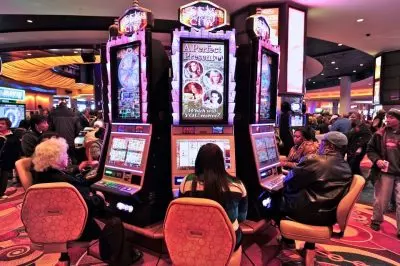 Only six months after a judge put an end on the efforts of Conover and Hickory in North Carolina to roll out a crackdown on local gaming establishments, the two cities will return to court in order to once again defend their view that these business are not operating legally.
Only six months after a judge put an end on the efforts of Conover and Hickory in North Carolina to roll out a crackdown on local gaming establishments, the two cities will return to court in order to once again defend their view that these business are not operating legally.
Later today, a court decision is to be made to decide whether the two cities’ police departments would be able to bring charges against the gaming businesses in question, or not.
Last summer, Conover and Hickory police departments sent letters to local gaming establishments informing the businesses that the PDs would soon start the enforcement of North Carolina gambling laws, so the establishments needed to make sure they were in line with the law. The establishments in question were warned of pending criminal charges and property confiscation in case they were found in violation.
Weeks later, in September 2018, Fun Arcade LLC which currently owns and operates seven gaming businesses in Conover and Hickory asked for a temporary restraining order to block authorities from rolling out the law-enforcement procedures on those businesses. What is more, the company’s attorney Jonathan Trapp argued that the games offered at the gaming businesses of the company actually fit in a law exception due to the fact that they are not chance-based but rely on the players’ skills.
The claims of the company were backed by an expert letter from Neil Mulligan, a professor at the University of North Carolina, who confirmed the skill-based nature of the games. As a result, a temporary restraining order was granted by Nathan Poovey, the Catawba County Superior Court Judge.
Hickory and Conover to Bring Expert’s Opinion at Court Hearing
 No expert witnesses on behalf of Hickory and Conover were present at the time of the temporary restraining order hearing.
No expert witnesses on behalf of Hickory and Conover were present at the time of the temporary restraining order hearing.
This time, however, the authorities would bring an expert of their own to face the claims of Fun Arcade LLC. An expert report on behalf of the cities was provided by Gaming Laboratories International’s senior engineering manager Andrew Baran.
Mr. Baran produced the report after visiting six of the businesses included in the original filing, as well as one more business which was not included in the original filing but is also being represented by the others’ lawyers. He analyzed the controversial machines and compiled a report, saying that the games in question did not require skill.
According to the cities of Conover and Hickory, the machines provided by the gaming establishments are actually illegal slot machines as they allow customers to place money bets hoping to win some money. The cities also argue that even if the games were actually skill-based, the state gambling law’s exception would not be valid, as the awards generated by the machines exceed $10 in value, which contradicts to the local gambling legislation.
City officials are skeptical about the level of skill required by players for the games offered by the two cities’ gaming establishments.
In fact, the disagreements regarding the legal status of these businesses is not a recent issue. The two parties in the legal dispute, however, would have to find a solution. Some state lawmakers have already started working to pass a piece of legislation set to put some restrictions on businesses offering skill games. Back in 2017, an amendment to a House bill aimed at limiting the number of gaming machines to four in a certain location was passed by the North Carolina Senate but was shelved in the House.